Springs are toughened metal coils that store and release energy, helping objects to return to a particular position. They stretch when a force is applied to them and returns to their original shape when released. Read More…
Coiling Technologies, Inc. has the experience and expertise to design and engineer the custom springs to meet your specific requirements. We are a leading manufacturer of high-tech, specialized springs and we are committed to providing quality products with fast lead times. Our automated process allows us to produce the reliable springs you need.
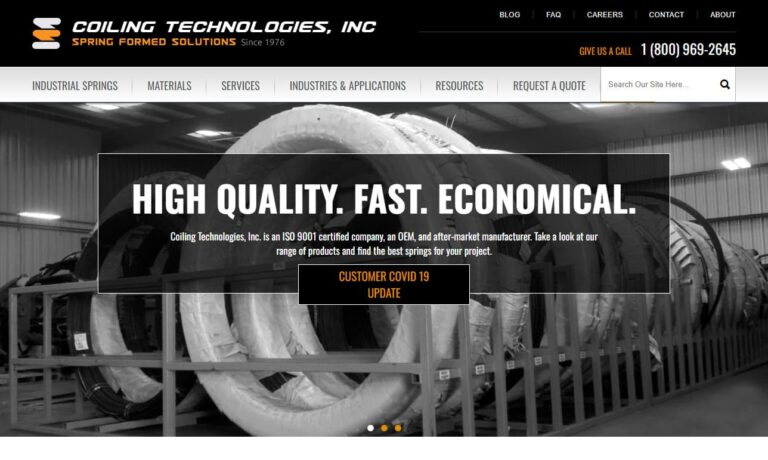
At Stalder Spring Works, we specialize in designing and manufacturing high-quality springs tailored to meet the diverse needs of our customers. With decades of experience, we have built a reputation for precision, durability, and reliability in every spring we produce. Our expertise covers a wide range of industries, ensuring that whether our customers require compression, extension, torsion, or...

At Sterling Springs LLC, we specialize in manufacturing a wide variety of high-quality springs for various industries and applications. Our product line includes compression springs, coil springs, torsion springs, extension springs, and industrial springs. We take pride in our capabilities to produce springs in a wide range of sizes and shapes, from tiny springs for delicate medical devices to...
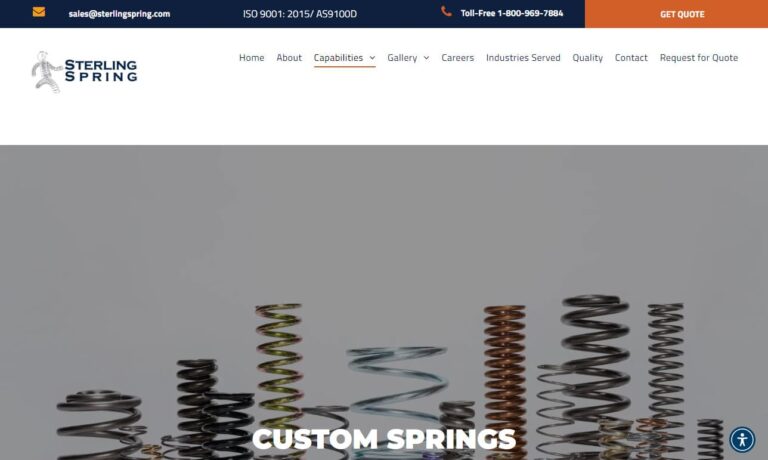
We offer years of combined experience and also provide production control, purchasing, and sales. We encourage creativity and empower both employees and customers. Our one-of-a-kind company provides many benefits for all our springs customers.
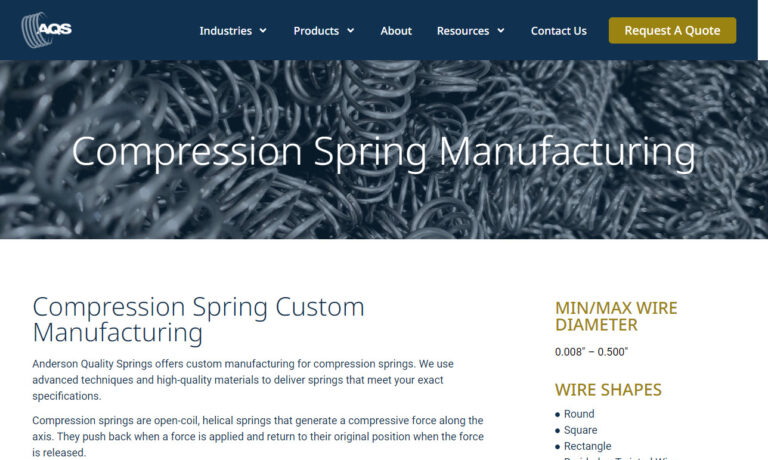
At C&F Wire Products, we dedicate ourselves to the precision design and manufacturing of springs that serve a wide range of industries and applications. With decades of experience, we have built our reputation on consistency, quality, and the ability to deliver solutions that meet the unique needs of our customers.
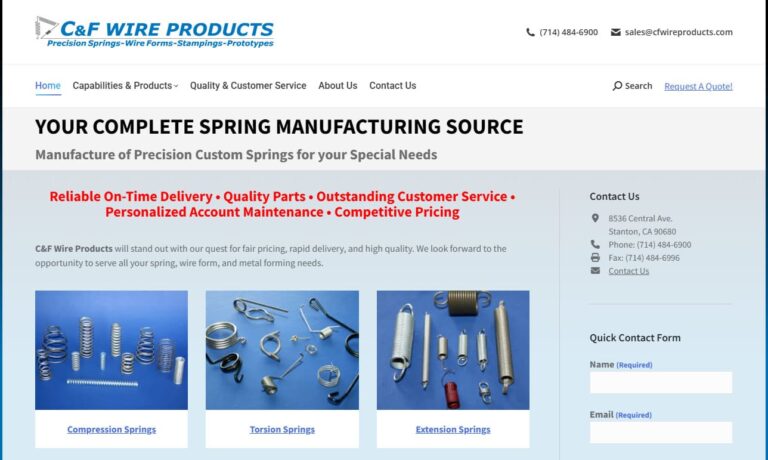
At Master Spring & Wire Form, we take pride in being a trusted manufacturer of precision springs and custom wire forms. We specialize in producing high-quality compression, extension, and torsion springs that serve a wide range of industries, from automotive and medical to electronics and industrial equipment.
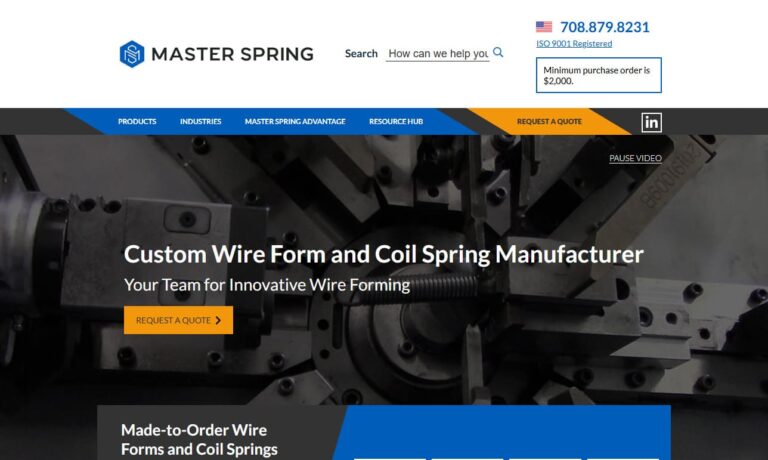
Action Spring has the experience and the expertise to manufacture dependable springs and wire forms for your application. Industries served include aerospace, electronics, recreational, and more. We can manufacture a variety of springs ranging in sizes from .003 to .500., and are able to produce almost any shape and size that a customer may need.
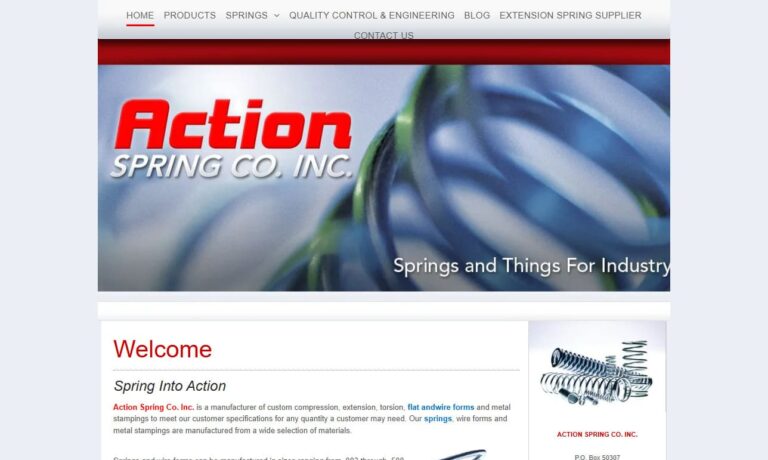
More Metal Spring Manufacturers
Springs are essential mechanical components that store and release energy through elastic deformation. Their ability to change shape depends on the amount of force applied. However, excessive force can permanently deform a spring, causing it to lose its original shape and mechanical properties. Over time, springs may fail due to metal fatigue as continuous stretching and compressing introduce microcracks within the material, eventually leading to structural breakdown. Understanding spring fatigue, failure modes, and maintenance can help extend the lifespan of metal springs in critical applications.

Materials Used in Metal Springs
The composition of metal springs plays a pivotal role in determining their performance, lifespan, and suitability for specific environments. The choice of material is influenced by factors such as the application, the magnitude of stress or stretch the spring must endure, operating temperature ranges, corrosion resistance requirements, and the desired spring geometry. Selecting the appropriate spring material is a key decision for engineers and product designers seeking optimal reliability and longevity.
Most metal springs are manufactured using steel alloys, particularly high-carbon steel and oil-tempered low-carbon steel, due to their excellent strength, elasticity, and cost-effectiveness. However, for specialized industries and demanding environments, alternative spring materials are increasingly sought after. Common options include:
- Chrome silicon steel – Offers superior high-temperature performance and fatigue resistance, ideal for automotive and heavy-duty industrial springs.
- Chrome vanadium steel – Excellent for high-stress, high-shock applications such as suspension springs and aircraft landing gear.
- Stainless steel – Provides outstanding corrosion resistance, making it suitable for marine, medical, and food processing applications.
- Beryllium copper – Non-magnetic and corrosion-resistant, often used in electrical connectors and sensitive instrumentation.
- Phosphor bronze – Known for its resilience and electrical conductivity, commonly utilized in switches, relays, and electrical contacts.
- Titanium alloys – Lightweight, corrosion-resistant, and highly durable, chosen for aerospace, defense, and high-performance automotive components.
- Rubber or urethane – Used for non-coil and elastomeric springs where flexibility and noise reduction are priorities.
- Ceramic materials – Employed for coil springs operating in extreme high-temperature environments where metals may fail.
- Composite materials – Such as one-directional glass fiber composites, are under research for advanced spring manufacturing, offering unique combinations of strength, flexibility, and weight savings.
Choosing the right spring material is crucial for maximizing performance and minimizing long-term maintenance costs. Are you evaluating materials for custom spring design? Contact us to discuss your material selection challenges or request a quote for specialty metal springs.
Manufacturing Process of Metal Springs
The manufacturing process of metal springs has evolved with advances in metallurgy and precision engineering. Understanding each step in the process is vital for ensuring spring quality, consistency, and performance. The typical steps in spring manufacturing include:
Coiling
The first step is wire coiling, which forms the basic shape of the spring. There are two main techniques:
- Cold winding – Performed at room temperature, suitable for smaller diameter wires and high-precision springs.
- Hot winding – Utilized for larger diameter wires, involving heating the material to increase ductility, followed by rapid cooling (quenching) in oil to set the coil shape.
Automated CNC coiling machines ensure accuracy and repeatability for high-volume and custom spring production.
Hardening
After coiling, the spring wire is stressed and must be tempered to restore elasticity and relieve internal stresses. This is achieved by heating the spring in an industrial oven at controlled temperatures for a specified duration, enhancing fatigue life and mechanical properties.
Finishing
Finishing processes enhance the durability and surface quality of the spring. Common finishing techniques include:
- Shot peening – Bombarding the surface with small steel balls to introduce compressive stresses, increasing resistance to metal fatigue and crack initiation.
- Coating and plating – Applying protective finishes such as zinc, phosphate, or epoxy coatings to prevent corrosion and wear, especially in harsh or outdoor environments.
- Grinding and polishing – Improving end flatness and surface smoothness for precise assembly and reduced friction.
Are you interested in custom spring fabrication or prototyping? Request a consultation with our engineering team for expert guidance on spring manufacturing best practices.
Types of Metal Springs
Metal springs are engineered in a vast array of types and configurations, each designed to fulfill specific mechanical functions. The selection of the correct spring type is critical for achieving optimal force transmission, energy storage, or motion control in mechanical systems. Here are the most common types of metal springs and their typical uses:
Compression Springs
- A compression spring is an open-coiled helical spring that resists compressive forces and is designed to return to its original shape when the force is removed.
- Available in various shapes—cylindrical, conical, barrel, and hourglass—to suit space and force requirements.
- Widely used in automotive suspensions, industrial machinery, pens, valves, and medical devices.
Need help specifying compression springs? Browse our compression spring solutions or get design assistance.
Torsion Springs
- Torsion springs deliver torque by exerting a rotary force as they twist around an axis.
- Commonly used in hinges, counterbalances, clothespins, and automotive lift gates.
- Available in single or double configurations to accommodate clockwise or counterclockwise applications.

Extension Springs
- Extension springs are designed to store energy and resist stretching forces, returning to their original length when tension is released.
- Feature hooks, loops, or custom ends for attachment to other components.
- Common in garage doors, trampolines, farm equipment, and industrial machinery.
Constant Force Springs
- The constant force spring is a pre-stressed flat strip of metal that exerts a nearly uniform force throughout its extension.
- Ideal for applications requiring smooth, consistent force, such as cable retractors, counterbalances, and medical devices.
- When mounted on a spool, these springs provide constant torque for rotary applications.

Belleville Springs
- Also known as Belleville washers, these are disc-shaped, slightly conical springs that generate high force in a small space.
- Used for pre-tensioning, vibration damping, and thermal expansion compensation in bolted assemblies and machinery.
- Available in stainless steel, carbon steel, and specialty alloys for corrosion and temperature resistance.
Drawbar Springs
- Ideal for overload protection, drawbar springs feature a built-in safety mechanism to handle static and dynamic loads.
- Load is transferred through end-mounted steel bars to the spring center, providing compression under tension.
- Frequently found in agricultural implements, heavy machinery, and industrial safety equipment.

Volute Springs
- A volute spring is a cone-shaped compression spring capable of being compressed to a very short height.
- Used where space constraints require significant energy absorption in a compact form, such as garden tools and heavy equipment.
- The overlapping coil design allows for high load capacity in limited space.

Garter Springs
- A garter spring is a continuous coiled spring with ends joined to form a circle, providing radial tension.
- Commonly used in oil seals, shaft seals, and electrical connectors to maintain sealing pressure.
- Manufactured from carbon steel or stainless steel for durability and corrosion resistance.

Flat Springs
- Flat springs are precision-stamped metal components used for deflection, energy storage, and force control in tight or restricted spaces.
- Made from high-carbon steel, copper alloys, or titanium alloys, tailored to customer requirements.
- Key applications include electrical contacts, automotive switches, and precision instruments.
Air Springs
- Air springs are pneumatic devices—bellows or bladder-type—used for shock absorption, vibration isolation, and lifting.
- Employed in vehicle suspensions, industrial machinery, and material handling equipment to improve comfort and reduce wear.
- Also known as air cushions, these springs are valued for their adjustable stiffness and load-carrying capacity.

Custom and Specialty Springs
- Custom springs are engineered for unique applications, including precision medical devices, aerospace assemblies, electronic components, and other highly specialized systems.
- Manufacturers offer a range of design, prototyping, and testing services to meet the most stringent industry standards.
Looking for a spring type not listed here? Contact our experts for custom solutions and engineering support.
Applications of Metal Springs
Metal springs are foundational elements in countless industries, thanks to their versatility, reliability, and efficiency in storing and releasing energy. Some of the most common metal spring applications include:
- Automotive industry: Used in clutches, brakes, suspension systems, shock absorbers, and engine components to absorb impact, control motion, and enhance safety.
- Aerospace and defense: Employed in landing gear assemblies, actuators, and control surfaces for vibration damping and load distribution.
- Industrial machinery: Facilitate motion control, tensioning, and load management in presses, conveyors, and robotics.
- Consumer products: Found in doors, windows, toys, electronics, and household tools for functions such as latching, returning, and cushioning.
- Medical devices: Precision springs enable repeatable motion and force control in surgical instruments, pumps, and diagnostic equipment.
- Electrical and electronics: Utilized in switches, relays, connectors, and battery contacts for reliable electrical performance and mechanical resilience.
- Construction and agriculture: Springs are used in heavy-duty equipment, gates, and safety mechanisms to manage loads and absorb shocks.
- Railways and transportation: Springs aid in suspension systems, couplings, and braking mechanisms for smooth and safe operation.
Do you have a unique application requiring custom spring engineering? Request a quote or explore our industry solutions to find the right spring for your needs.
Benefits of Metal Springs
The benefits of using metal springs in mechanical systems are numerous. Key advantages include:
- Energy storage and release: Springs efficiently store mechanical energy and release it precisely when required, enabling smooth motion and force control.
- Durability: Quality metal springs can withstand millions of cycles under demanding conditions with minimal wear.
- Versatility: Available in a wide range of sizes, shapes, and materials to suit virtually any application or operating environment.
- Cost-effectiveness: Mass-produced springs provide reliable performance at a low unit cost, making them ideal for high-volume applications.
- Customizability: Springs can be engineered to meet exact force, space, and performance requirements.
- Corrosion and temperature resistance: Specialty alloys and coatings allow springs to operate effectively in harsh or corrosive environments.
Curious about how metal springs can improve your product’s performance? Speak with our technical team for expert recommendations.
How to Select the Right Metal Spring: Key Decision Factors
Choosing the appropriate metal spring for your application involves balancing several key factors. Here are essential considerations for engineers, OEMs, and sourcing professionals:
- Load requirements: Determine the force and deflection needed for your system.
- Operating environment: Consider temperature extremes, humidity, corrosive agents, and exposure to chemicals.
- Space and geometry constraints: Measure available space and specify the desired spring configuration (length, diameter, wire size, end types).
- Cycle life: Estimate how many cycles the spring must perform reliably over its lifespan.
- Material selection: Choose from standard or specialty materials for optimal performance and cost.
- Compliance and standards: Ensure the spring meets relevant industry certifications (ISO, ASTM, RoHS, etc.).
- Budget and lead time: Factor in project timelines and overall cost, including prototyping and production.
Choosing the Proper Metal Springs Manufacturer
To achieve the best results when sourcing metal springs for your project, it is crucial to partner with a reputable and experienced metal spring manufacturer. Here’s how to streamline your supplier evaluation process:
- Compare multiple manufacturers: Use our metal springs directory to compare 4–5 top companies, reviewing their capabilities, certifications, and areas of specialization.
- Research company profiles: Each manufacturer profile highlights unique strengths, production technologies, and value-added services.
- Request quotes and samples: Use direct contact forms to request pricing, technical documentation, or samples for side-by-side evaluation.
- Review quality and compliance: Assess the manufacturer’s quality control systems, compliance with industry standards, and customer support reputation.
- Leverage our website previewer: Get a quick overview of each company’s website and offerings using our patented website previewer tool.
- Streamline RFQ submission: Submit a single RFQ to contact multiple qualified suppliers simultaneously, saving time and ensuring competitive pricing.
Ready to start your search for the ideal spring partner? Browse our manufacturers directory or submit your RFQ today for fast, competitive quotes from industry leaders.
Frequently Asked Questions About Metal Springs
- What is the difference between compression and extension springs? Compression springs resist forces that push the coils together, while extension springs resist forces that pull the coils apart.
- How do I determine the right spring material for my application? Material selection depends on factors like load requirements, environment, corrosion risk, and regulatory standards. Consult with a spring engineer for tailored recommendations.
- Can metal springs be customized? Yes! Most manufacturers offer custom design, prototyping, and production services to meet specific force, size, and material requirements.
- What are common causes of spring failure? Overloading, metal fatigue, corrosion, and improper installation are leading causes. Regular maintenance and proper specification help prevent premature failure.
Have more questions? Contact us for personalized assistance or browse our knowledge base for detailed technical articles.


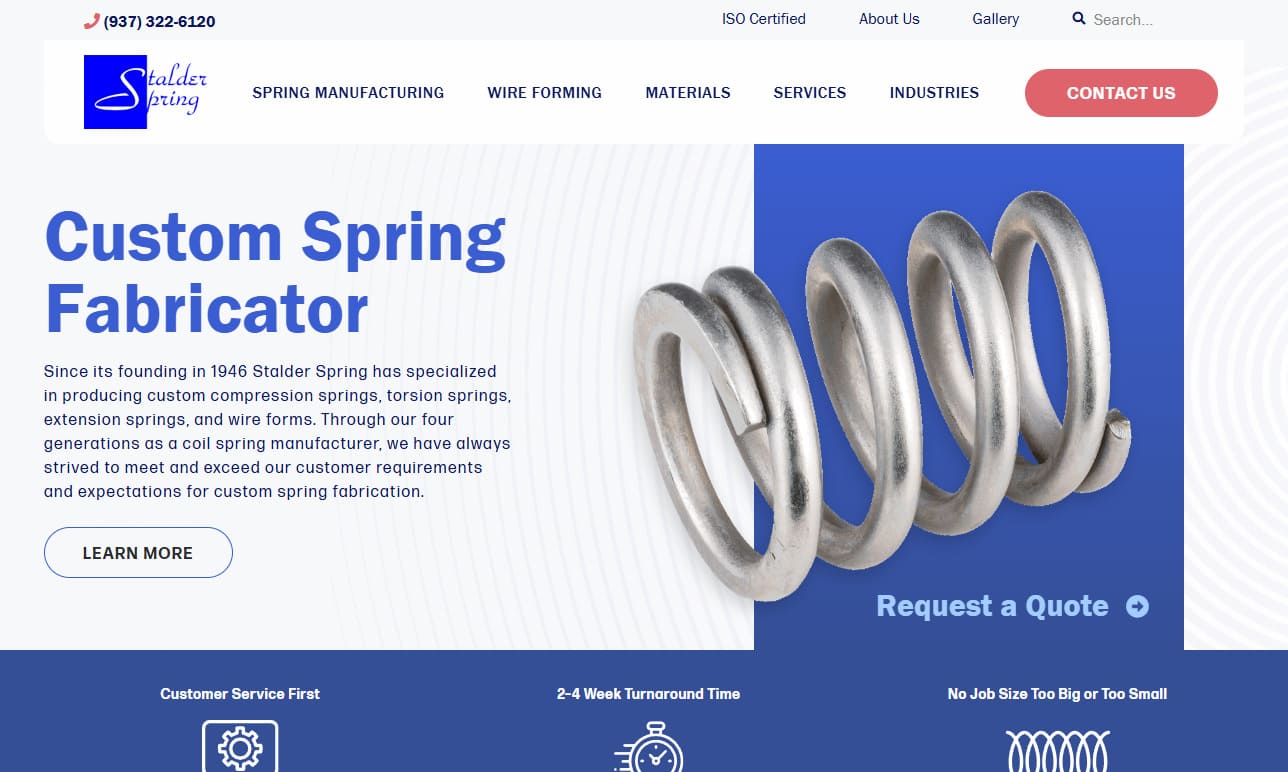
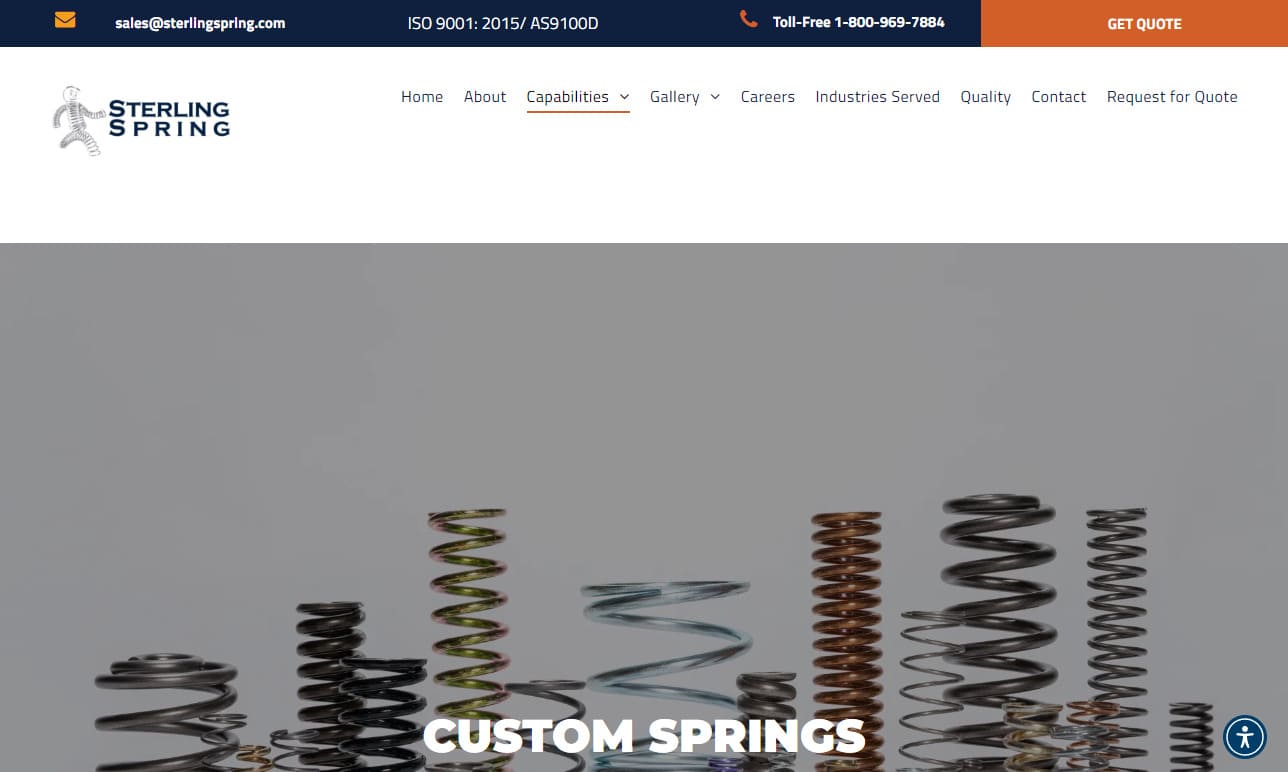

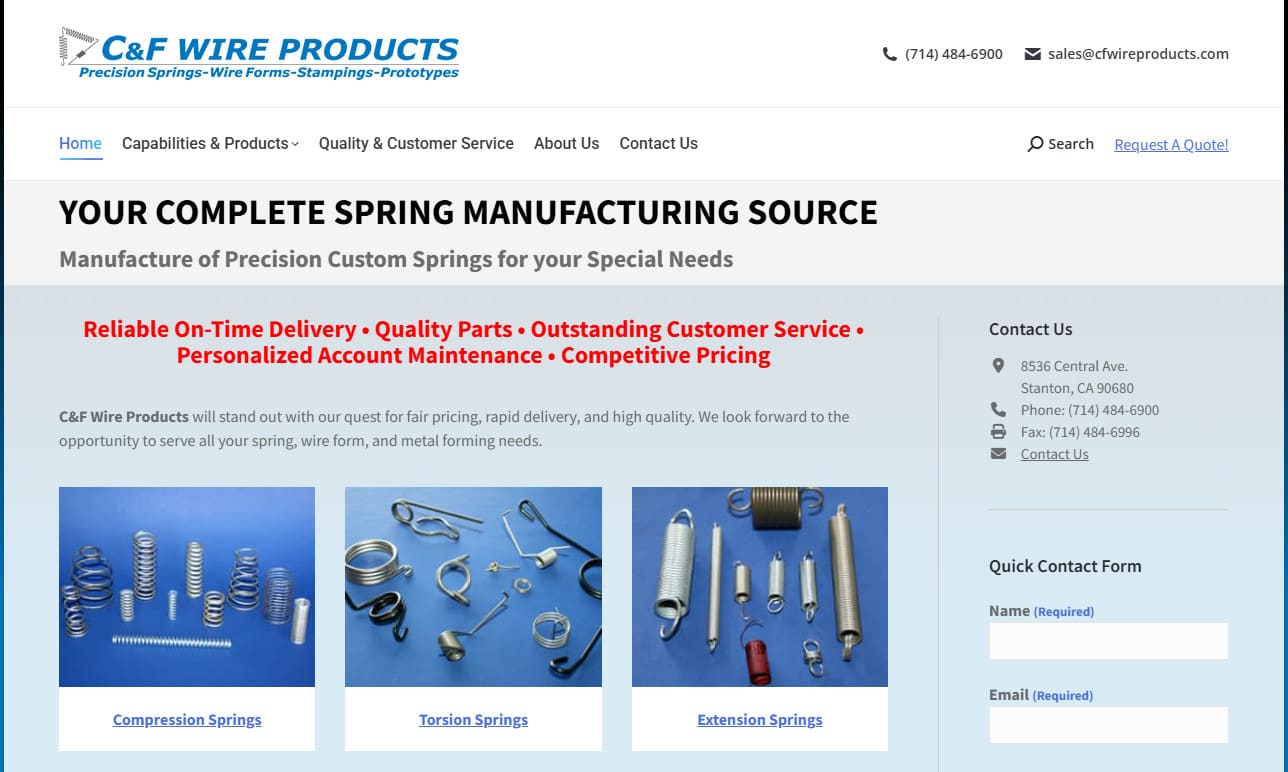
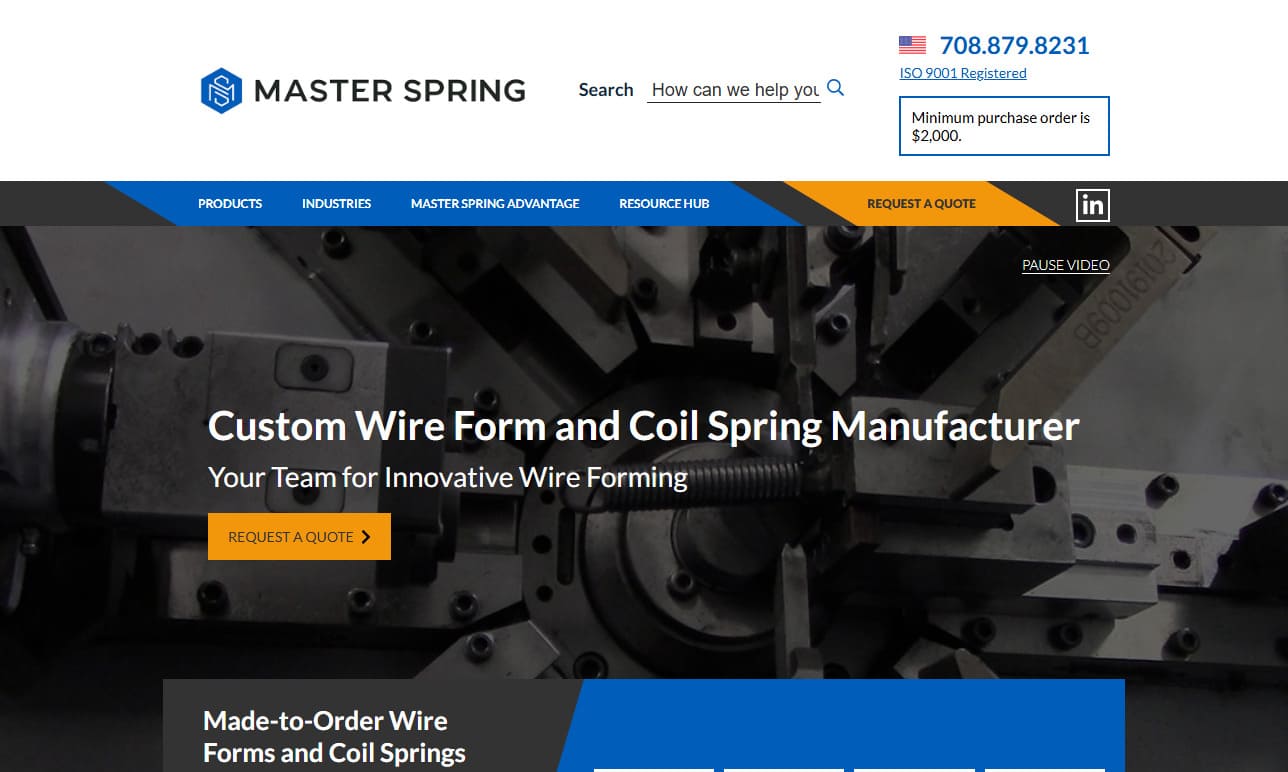
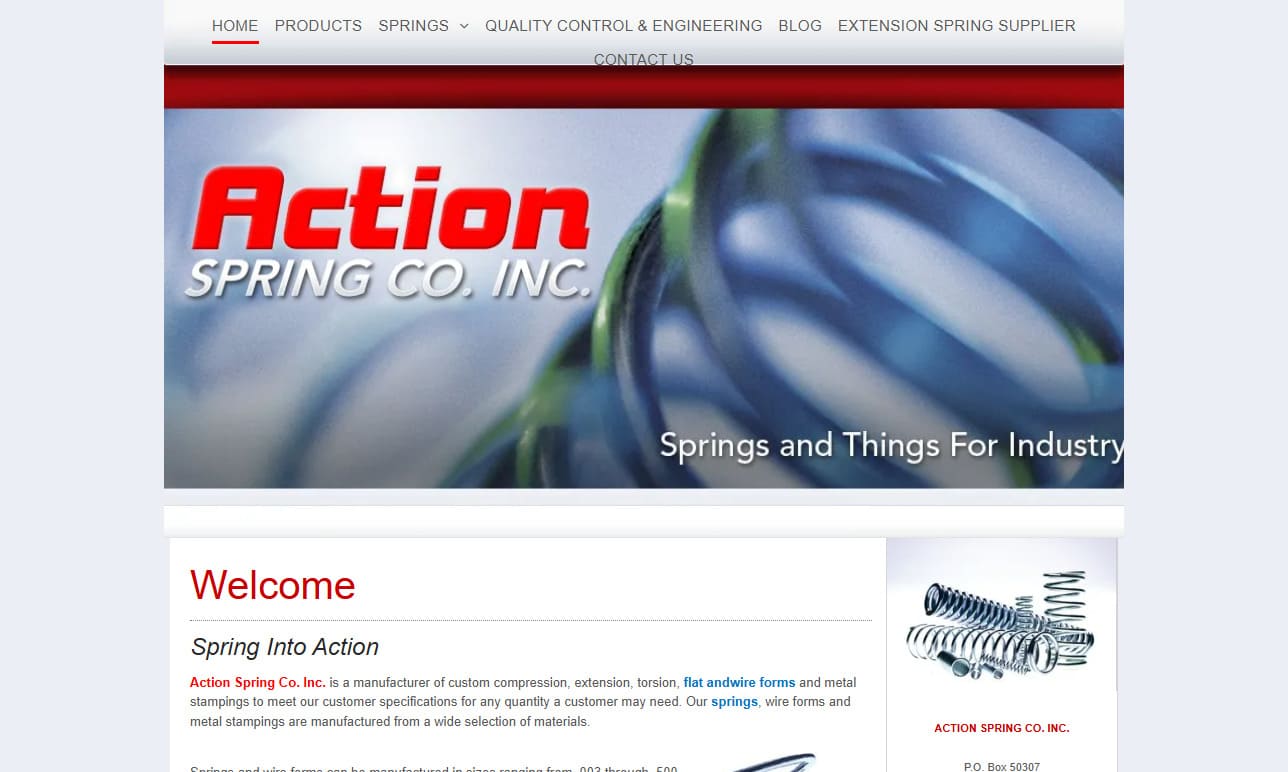
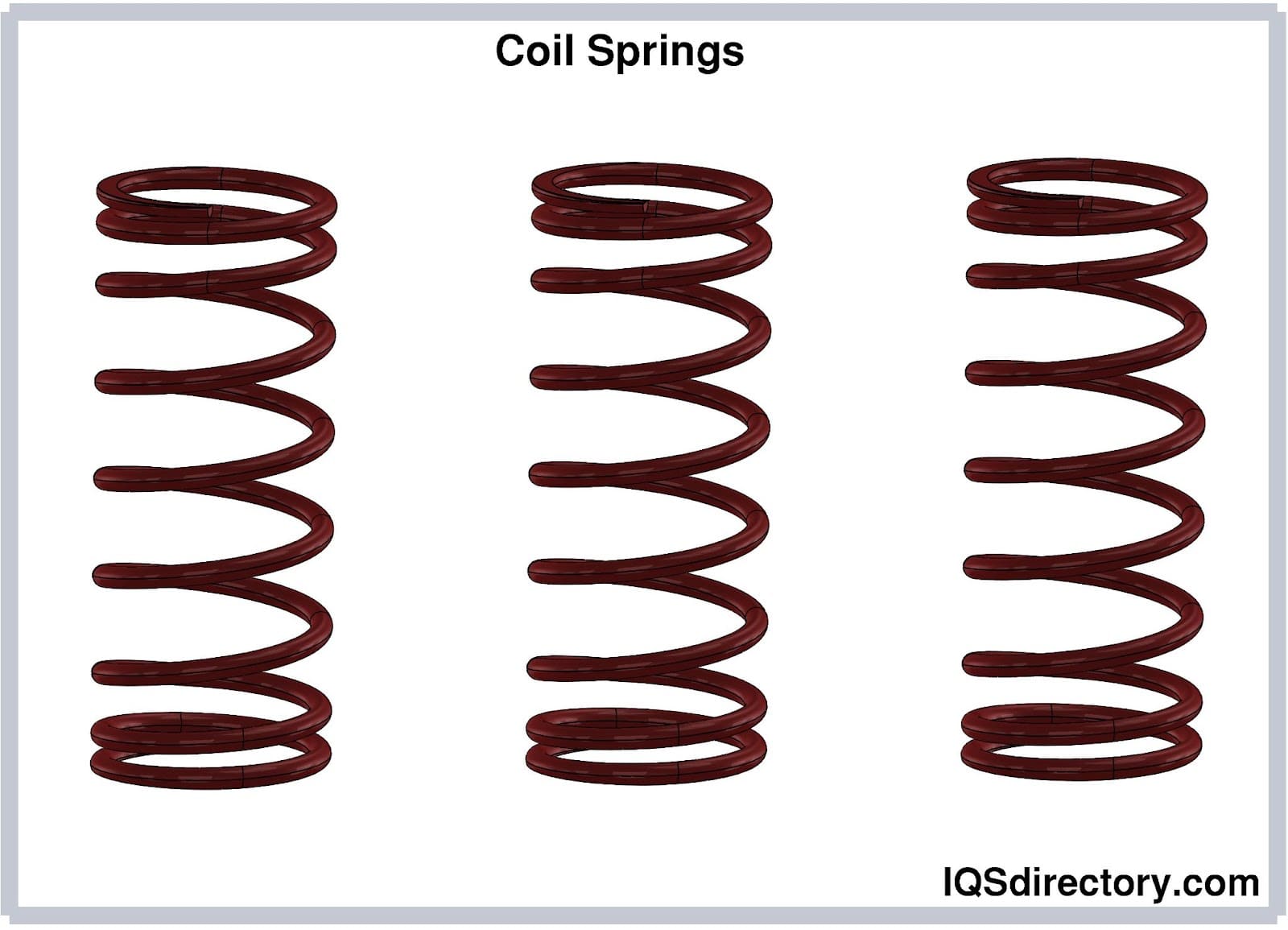
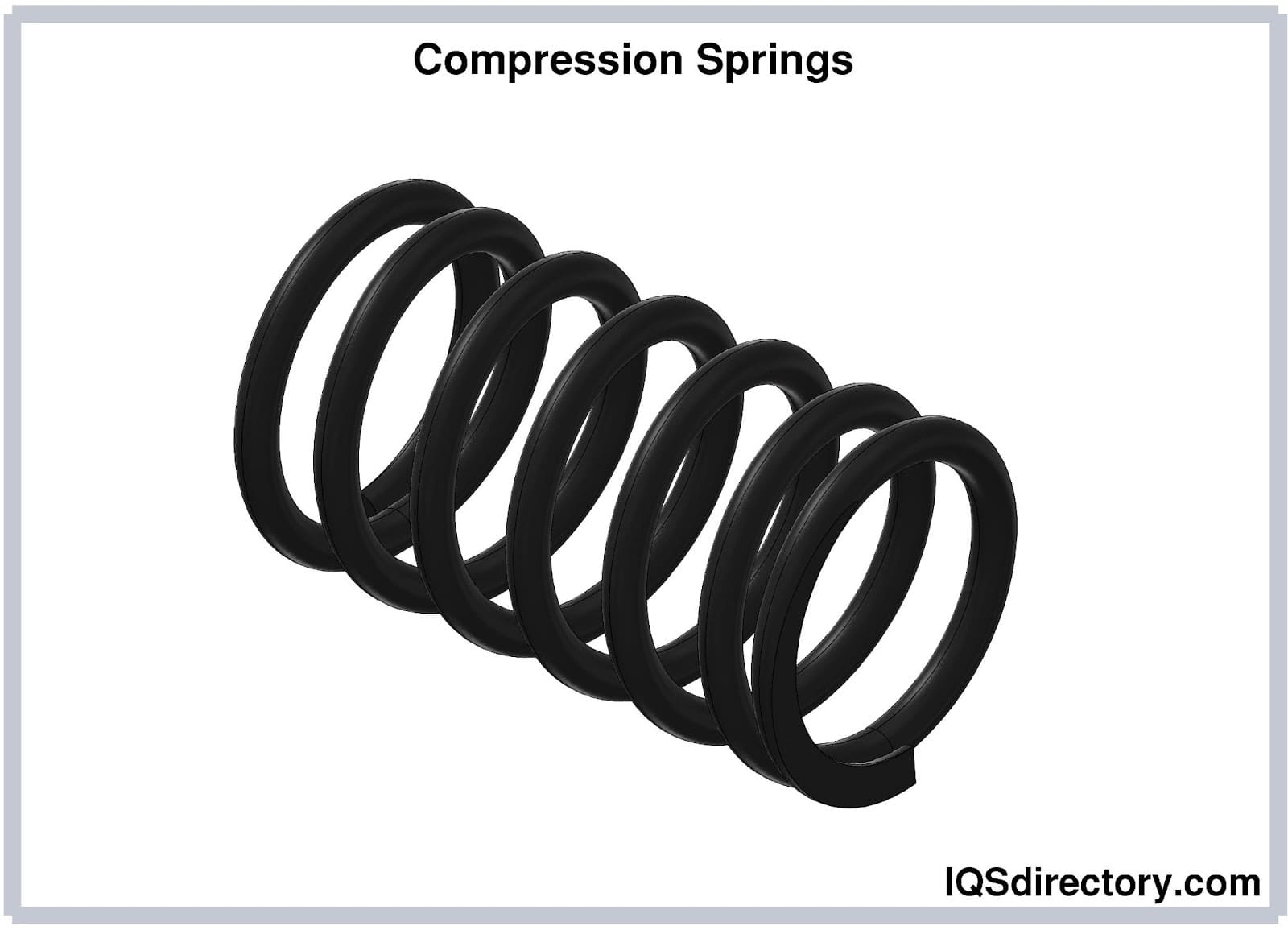
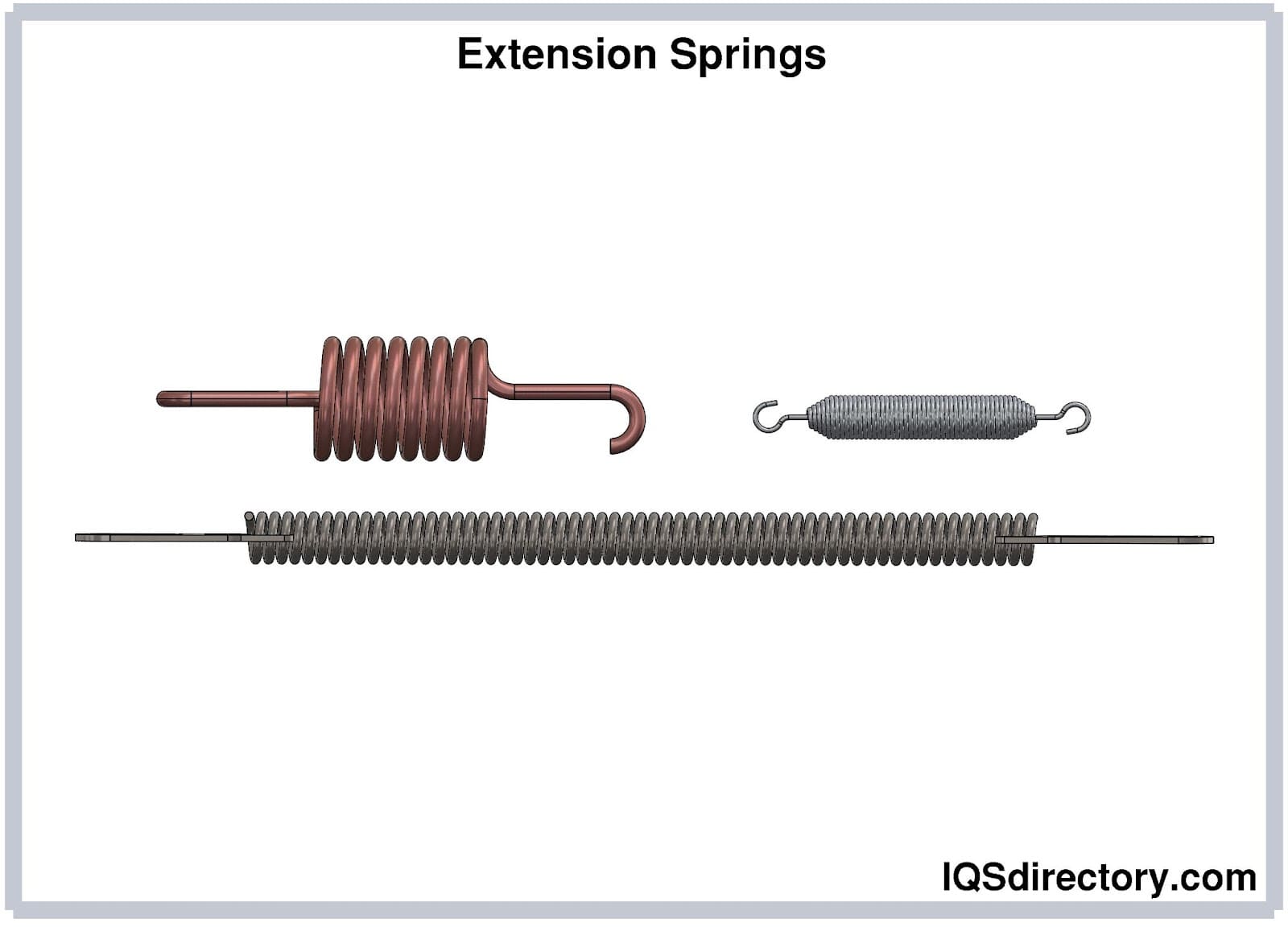
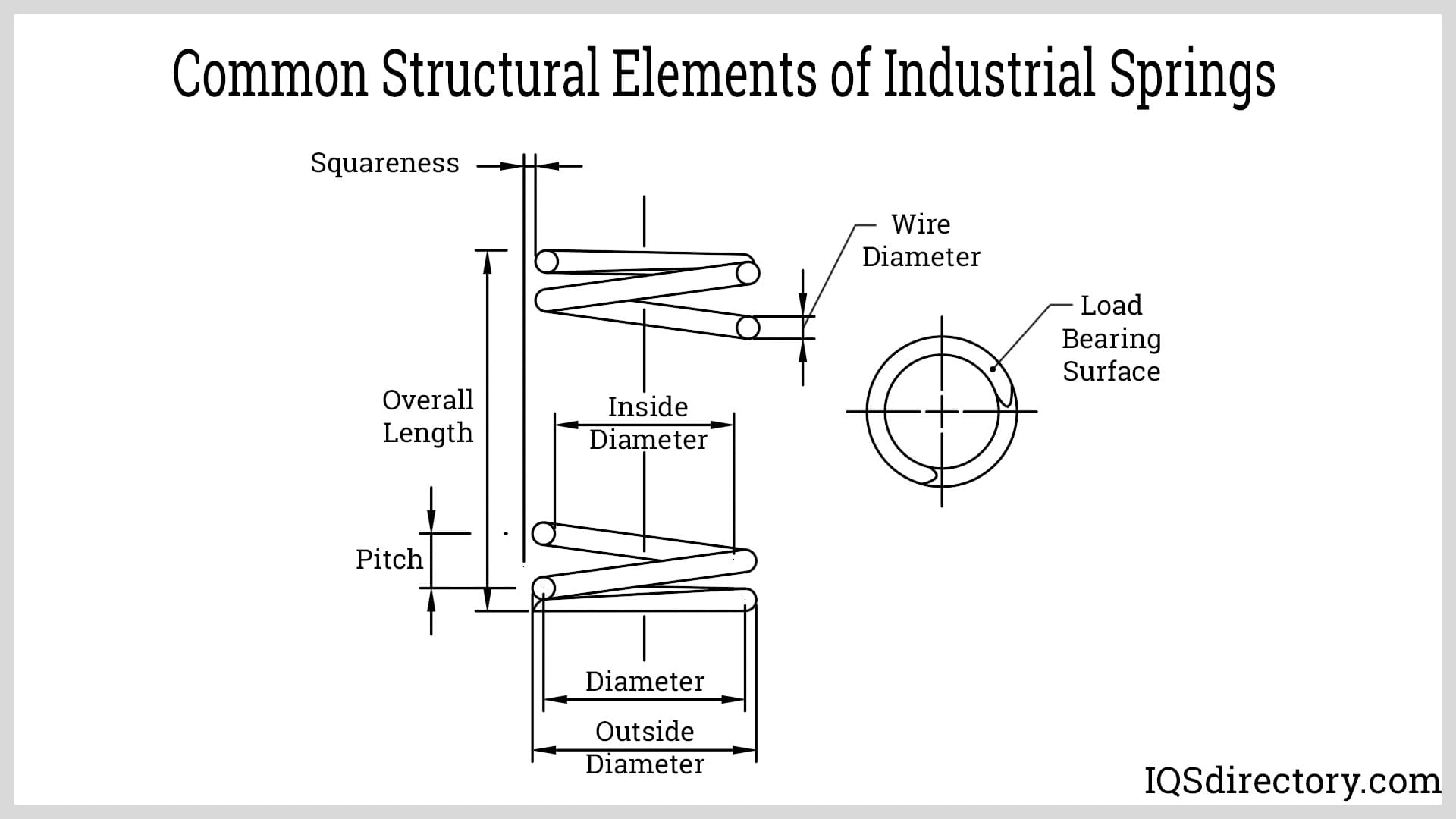
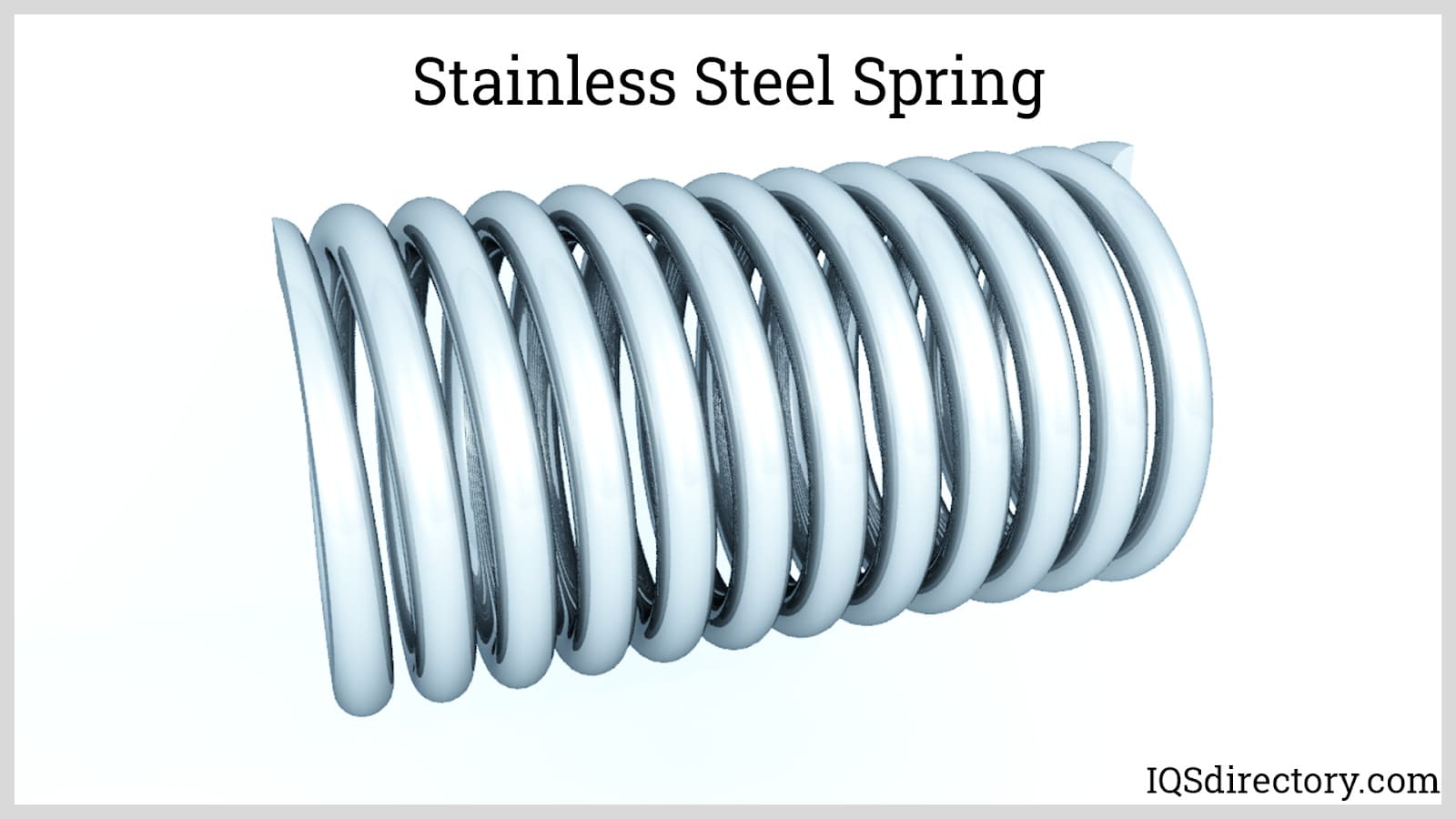
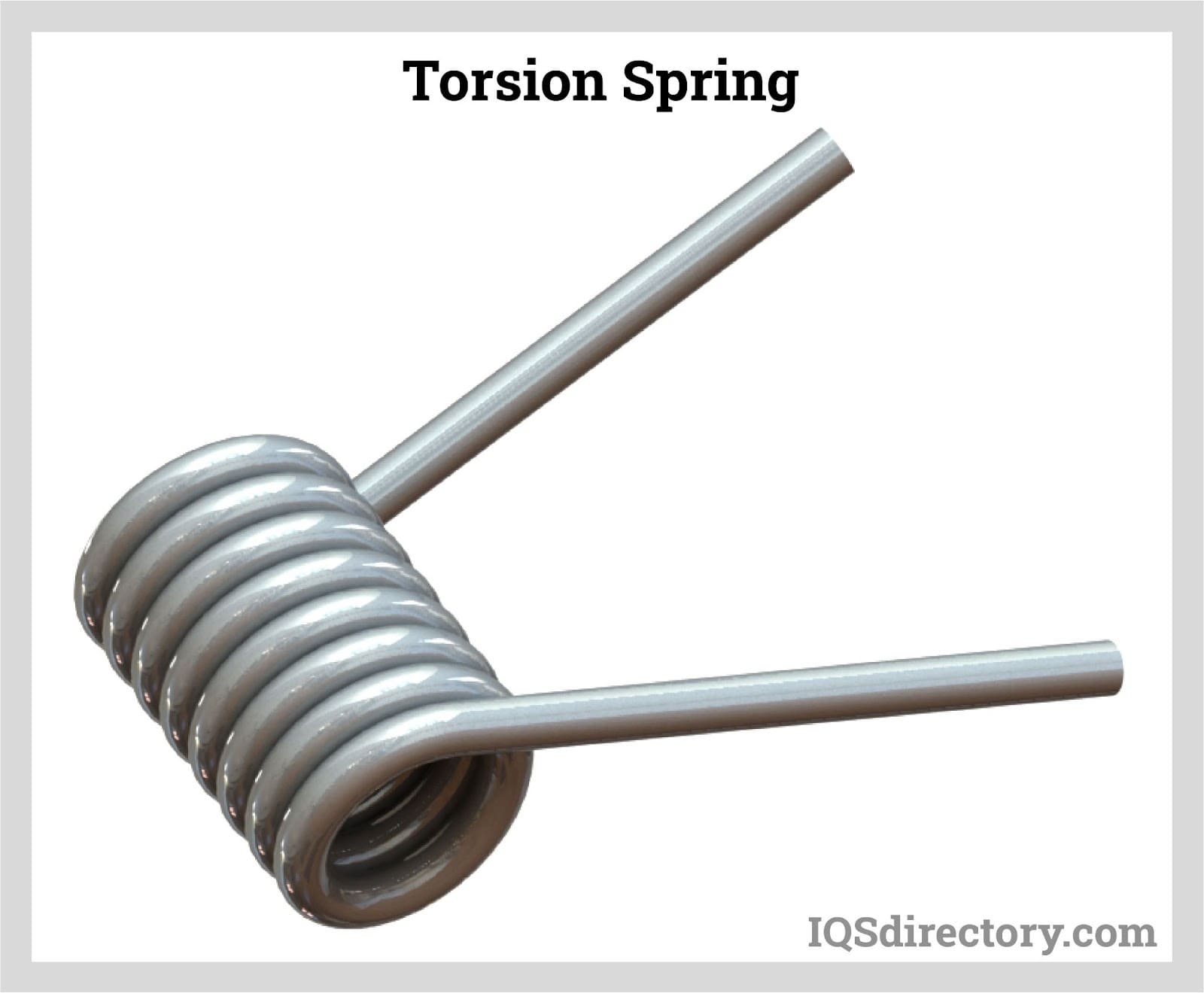
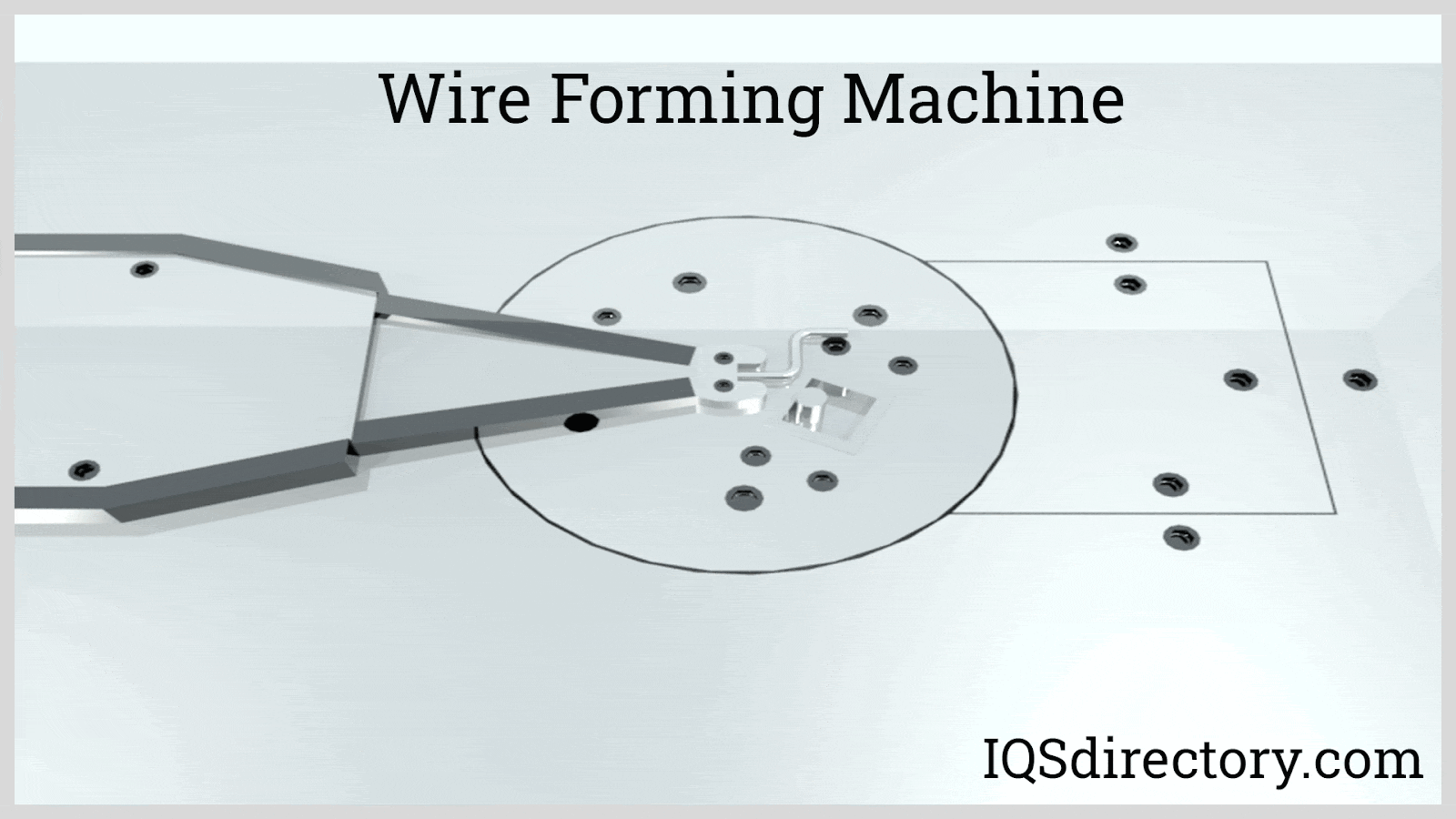
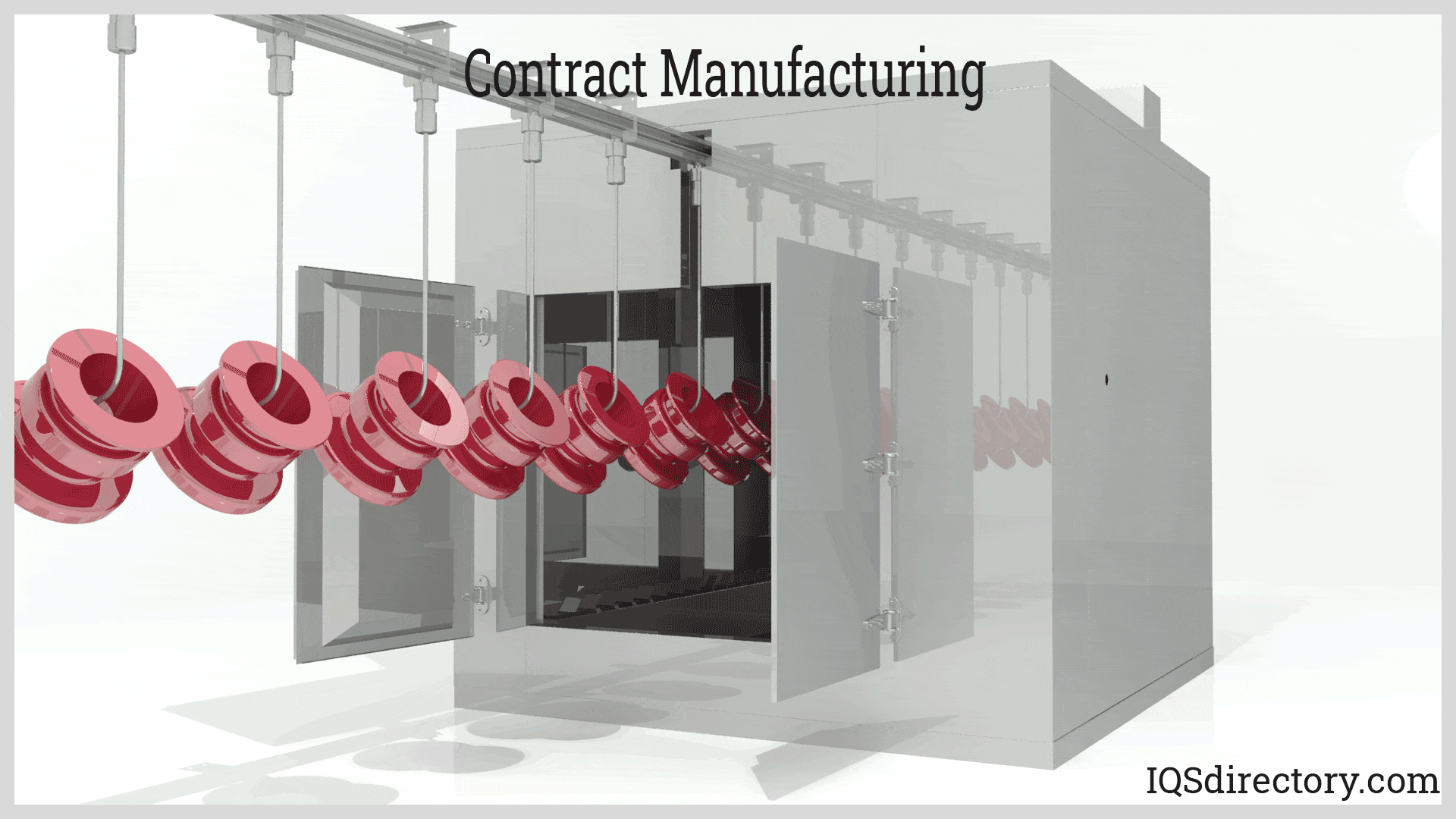
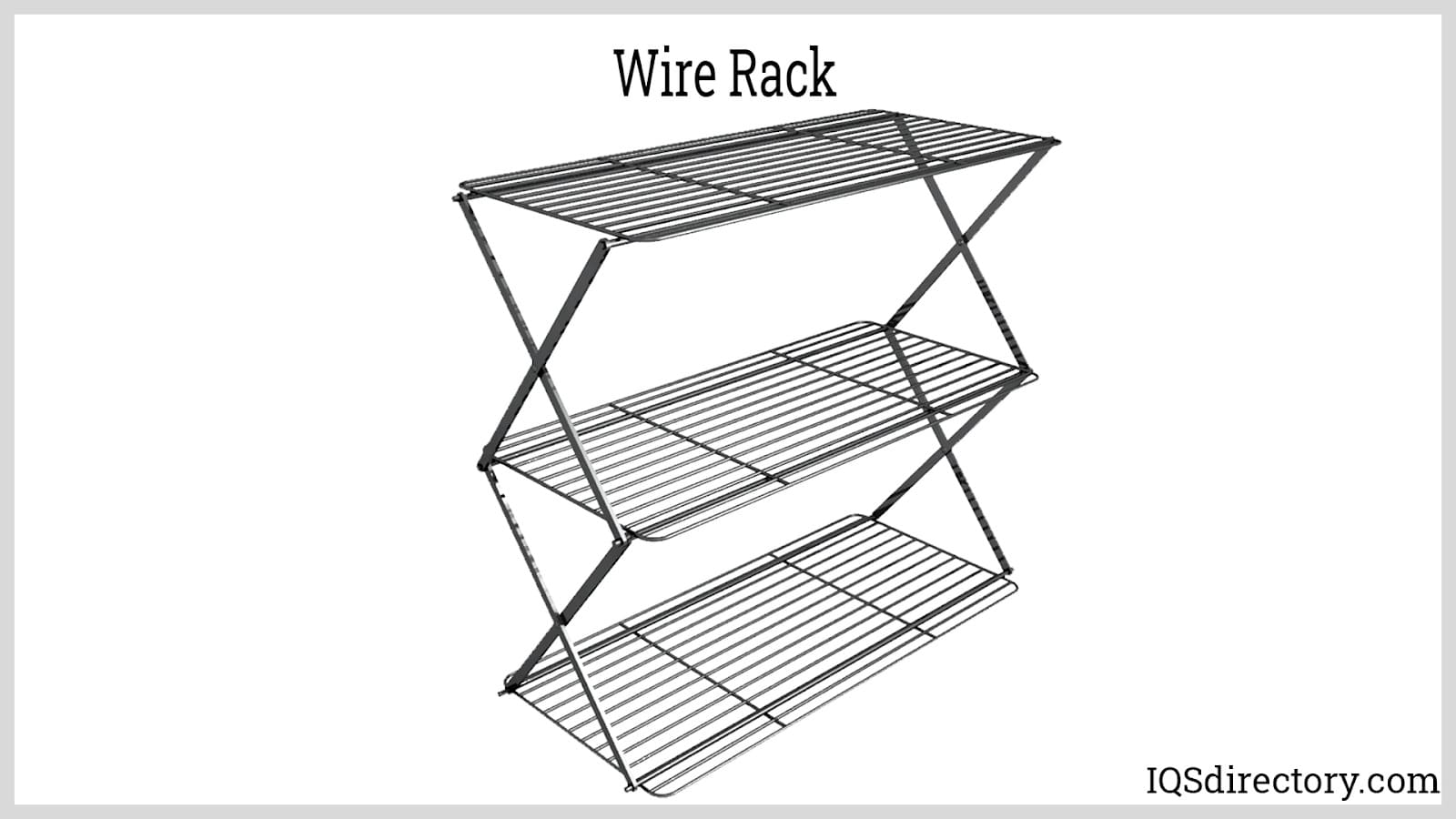
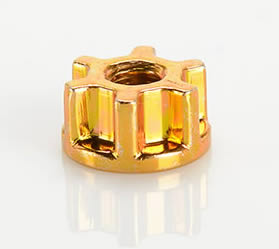 Cold Headed Parts
Cold Headed Parts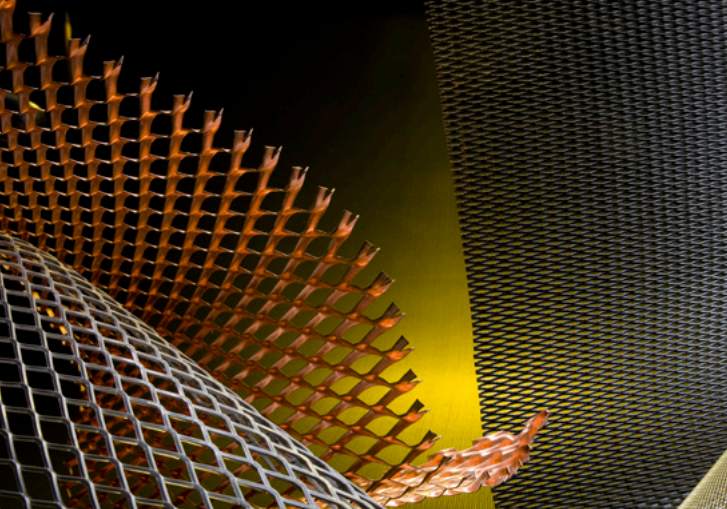 Expanded Metals
Expanded Metals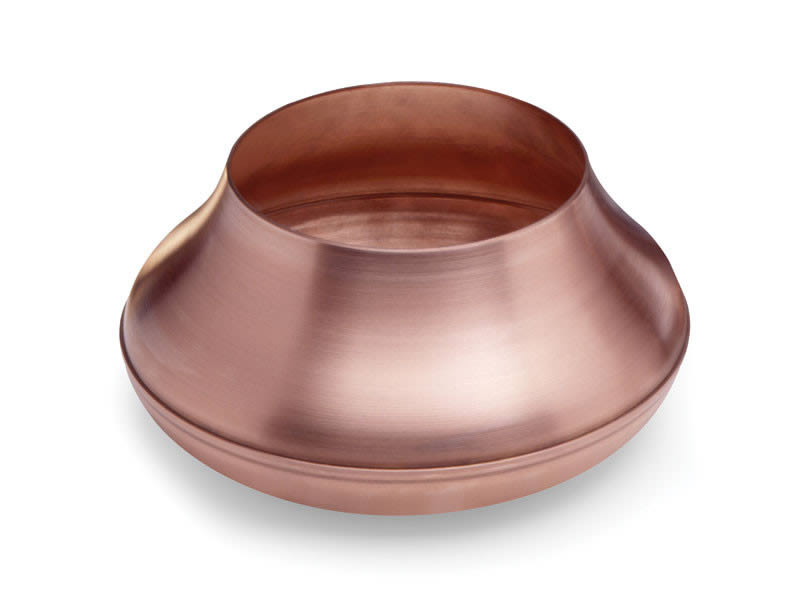 Metal Spinning
Metal Spinning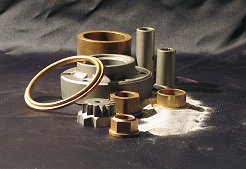 Powdered Metal Parts
Powdered Metal Parts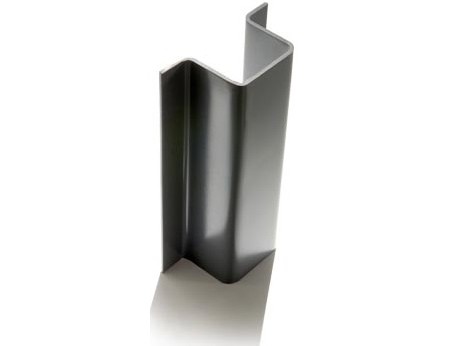 Roll Forming
Roll Forming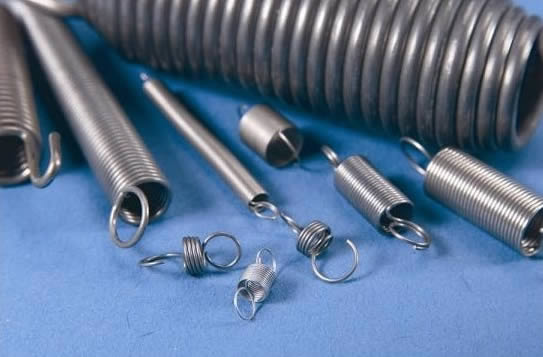 Springs
Springs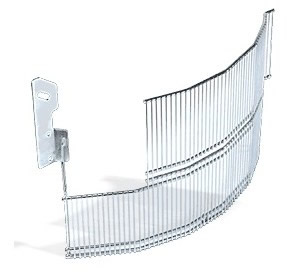 Wire Forms
Wire Forms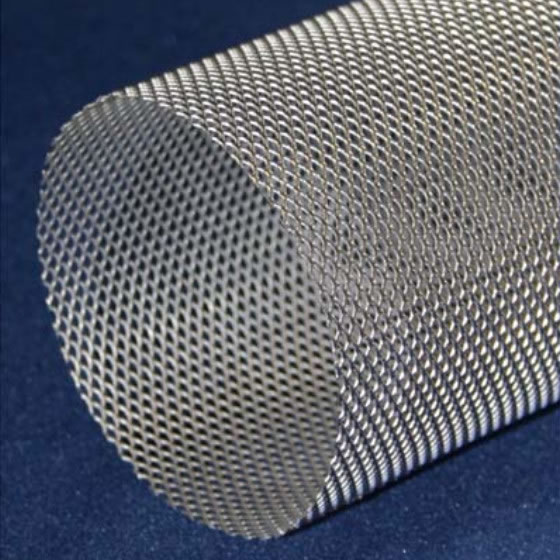 Wire Mesh
Wire Mesh Castings & Forgings
Castings & Forgings Bulk Material Handling
Bulk Material Handling Electrical & Electronic Components
Electrical & Electronic Components Flow Instrumentation
Flow Instrumentation Hardware
Hardware Material Handling Equipment
Material Handling Equipment Metal Cutting Services
Metal Cutting Services Metal Forming Services
Metal Forming Services Metal Suppliers
Metal Suppliers Motion Control Products
Motion Control Products Plant & Facility Equipment
Plant & Facility Equipment Plant & Facility Supplies
Plant & Facility Supplies Plastic Molding Processes
Plastic Molding Processes Pumps & Valves
Pumps & Valves Recycling Equipment
Recycling Equipment Rubber Products & Services
Rubber Products & Services